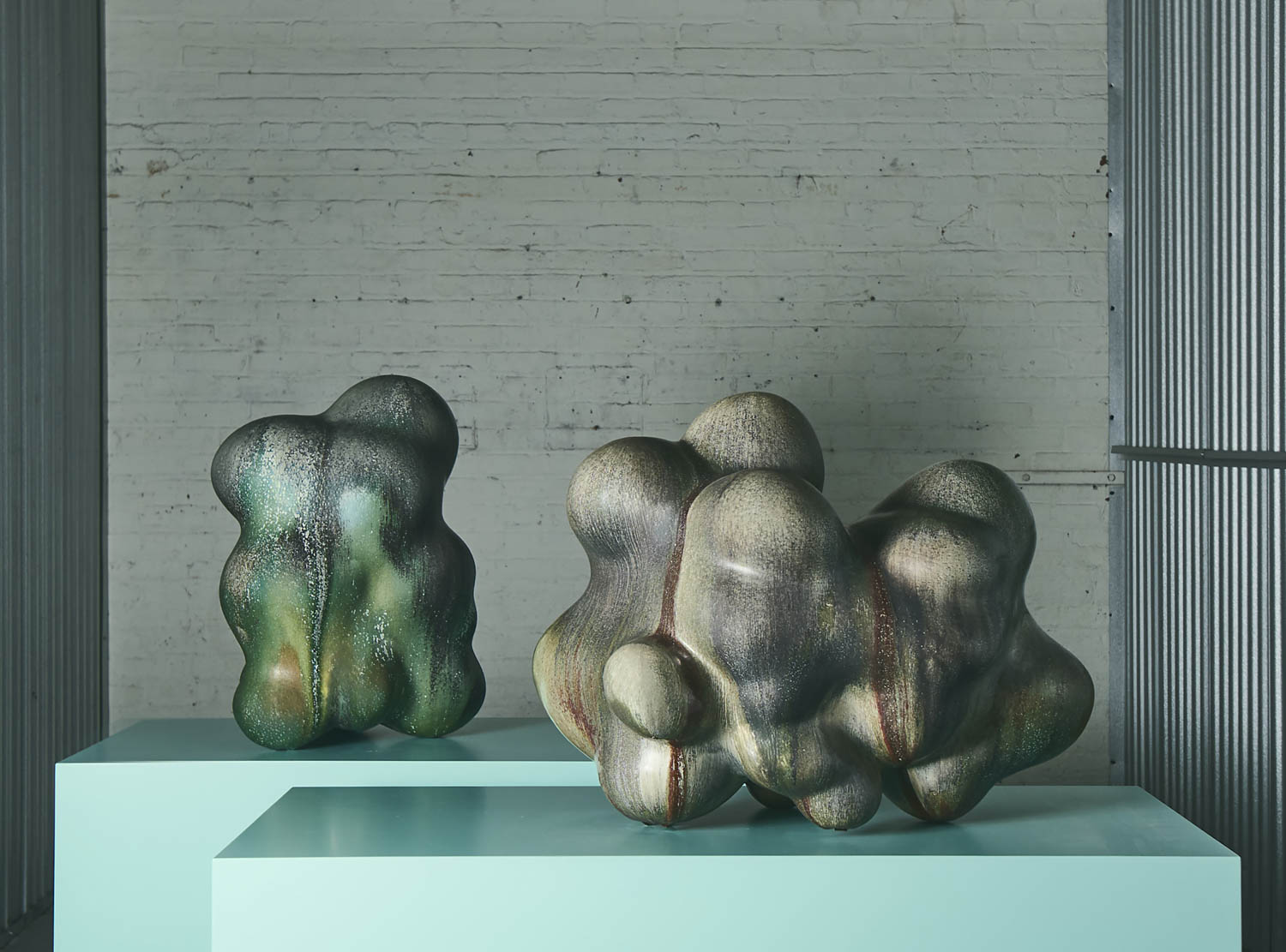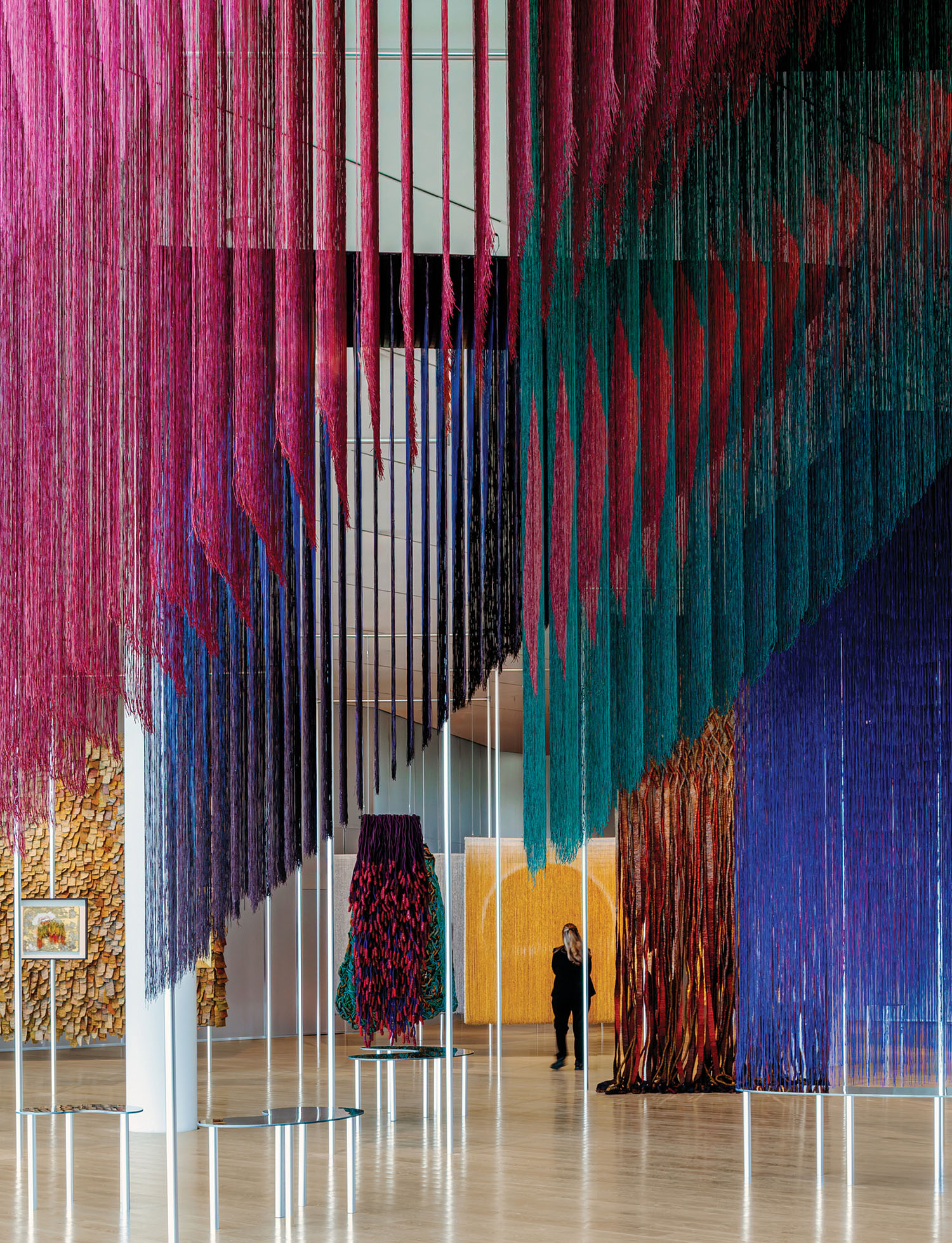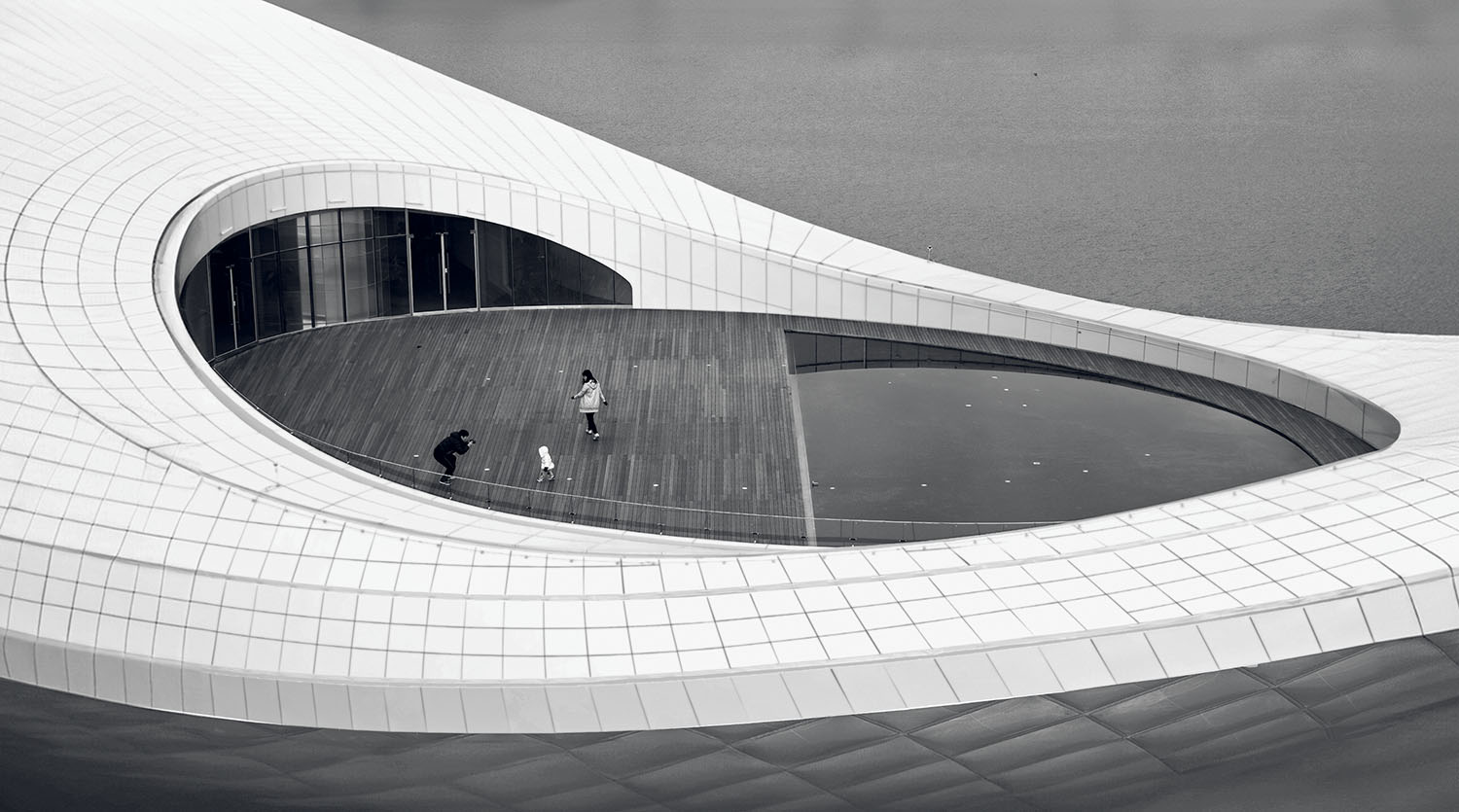6 Compelling Themes We Saw at Design Miami

Returning to Miami Beach for its 15th edition from December 3–8, Design Miami, an annual furniture and collectibles event occurring during Miami Art Week, debuted in new environs in Pride Park, adjacent to the entrance to Art Basel Miami Beach in the convention center. Alongside more than 70 museum-quality exhibitions of 20th- and 21st-century furniture, lighting, and objets d’art by 34 of the world’s most distinguished collectible design galleries and other top designers and studios, Design Miami also unveiled a series of inspired collaborations with high-profile brands, such as Fendi, Louis Vuitton, and Panerai.
Throughout the week, additional programming, panels, workshops, and film screenings took place in its Design Forum, where visitors engaged with the ideas and influences of some of design’s foremost creators, including Humberto Campana and Fernando Laposse, whose Pink Beasts were among the most talked-about creations at the fair. Reflecting some of the shifts in the design and art marketplace, Design Miami’s curator Aric Chenset the tone for this year’s fair with the theme “Elements: Water,” which many participants riffed on in their presentations. Other themes also emerged that forged conceptual foundations linking designers of the past with those of the future. Here are highlights:
Water:

In its take on “Elements: Water,” Carpenters Workshop Gallery presented Virgil Abloh’s Aqua Alta series of “sinking” furniture, which draws from the tidal peaks that affect Venetian life and calls attention to rising sea levels.
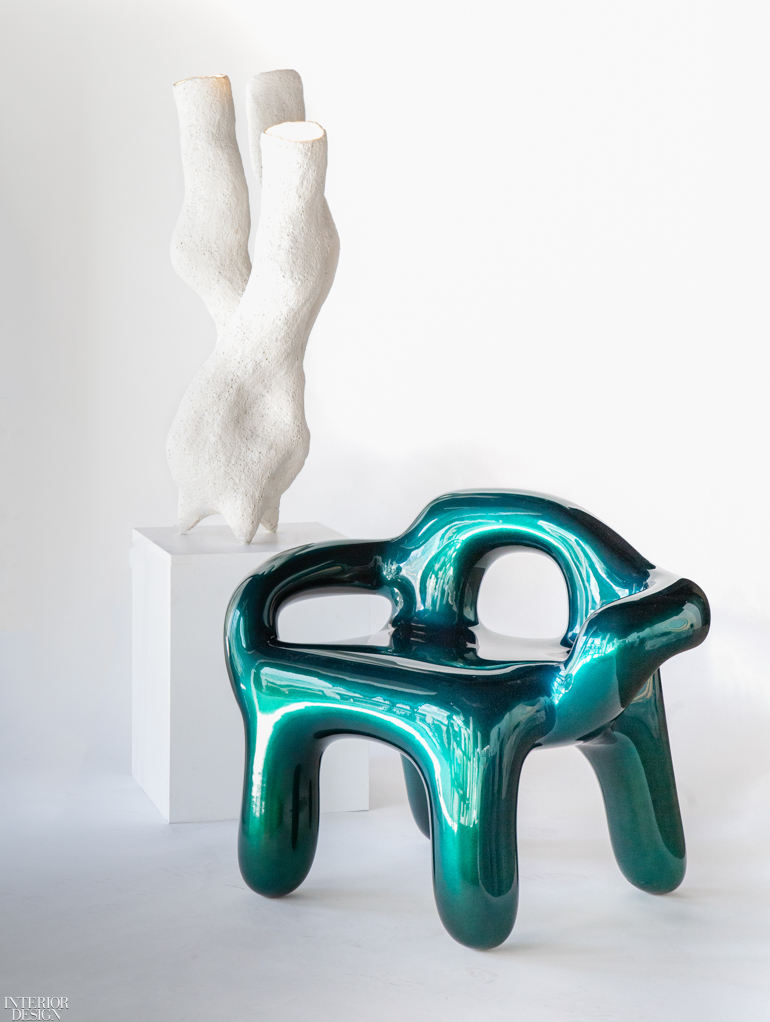
Galerie Scene Ouverte showcased an ocean-inspired Bumble armchair and Coral light sculpture by Léa Mestres within an underwater tableau.
Vanguard female designers: The influential creativity of female designers past and present stood out in several exhibitions.

Peter Blake Gallery’s Curio surveyed works by 20th-century award-winning French designer Jacqueline Lecoq, who with her partner, Antoine Philippon, pioneered and mastered the ability to graft the industrialism of postwar design with an aestheticism otherwise left behind in early 20th-century design.

Galerie Patrick Seguin emphasized the importance of French visionary Charlotte Perriand with its presentation of a cabinet made for the Cite Cansado in Mauritania.

Magen H Gallery also presented various works by Perriand inspired by trips to Japan, including a unique example of her iconic Table à Gorge.

Salon 94 Design showcased the new work of Jay Sae Jung Oh, a young industrial designer and founder of pet accessories brand Boo Oh whose one-of-a-kind furniture collection Savage included pieces made of recycled objects wrapped in fine leather straps and shown alongside the works of Gaetano Pesce, with whom Jay worked at the onset of her design career.
A modern take on traditional crafts: Many designers reimagined traditional artisanal crafts and materials such as glass, ceramic, and sisal in contemporary ways.

Showing works being made in real time, TAKT PROJECT‘s Curio exhibition focused on the creation of a Glow Grow lighting collection using LED light to solidify and melt resin, causing the material to grow like an iceberg and morph into new shapes as the lighting changes.
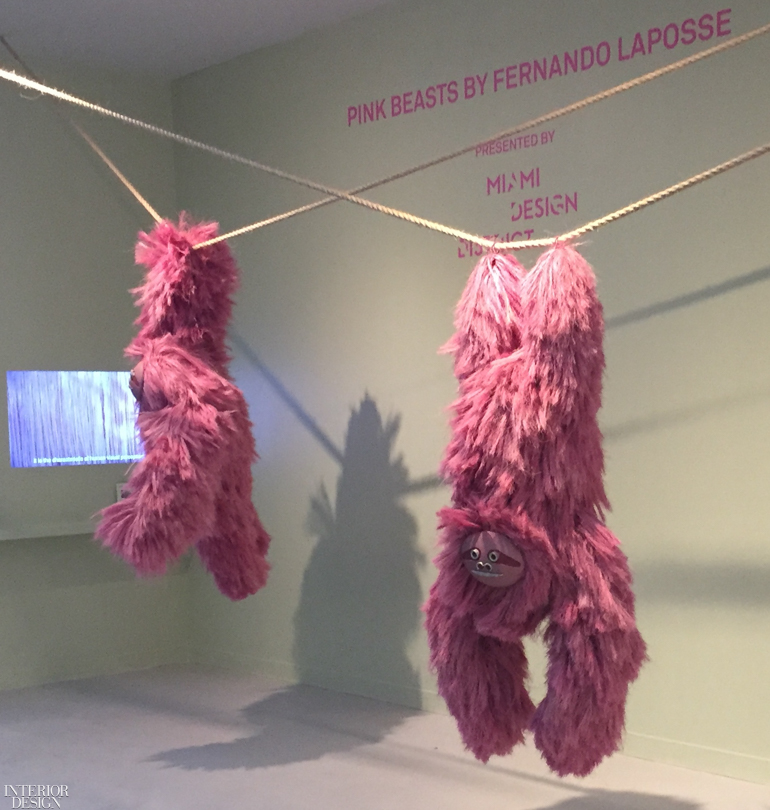
For the debut of his Pink Beasts, a collection of tassels, hammocks, and sloths made of long, pink strands of sisal and suspended at Design Miami and through the trees and on lampposts in Miami’s Design District as part of a 2019 Neighborhood Commission, London-based Mexican designer Fernando Laposse explored materials and techniques native to Mexico, collaborating with textile designer Angela Damman and local artisans in Sahcabá, Yucatán to create them.
Modern African and Japanese influences: Diverse and avante-garde creations from established and emerging artists were on display.
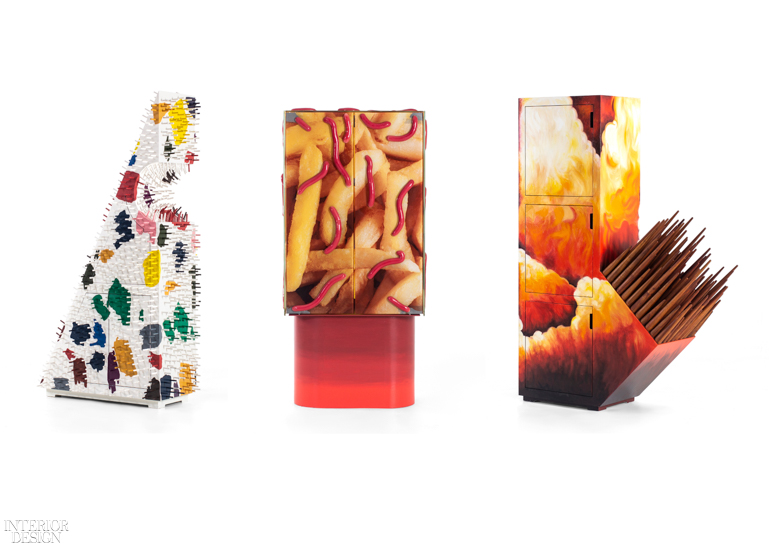
Southern Guild from Cape Town showed the work of some of the most avant-garde contemporary designers working out of South Africa, including Andile Dyalvane, Madoda Fani, Dokter and Misses, and Porky Hefer.

Sokyo Gallery from Kyoto represented Japanese artists working across mediums as diverse as textiles, lacquer, ceramics, paint, and photography.

Pierre Marie Giraud highlighted Japanese craftspeople, including Takuro Kuwata, whose experimental ceramics explored porcelain’s potential using purposeful wabi-sabi techniques.
Retrospective views: Several galleries showcased important early 20th-century works.

Moderne Gallery presented a thoughtful selection of rare furniture, including Paul Frankl’s Speed Lounge Chairs, one of his most famous designs, made for his own New York City apartment in 1933. While the chairs were typically fully upholstered, the unique set he created for himself was made of cork.

A conceptual presentation by Mercado Moderno celebrated the life and works of Portuguese-born Joaquim Tenreiro, the creator of the first examples of modern Brazilian design.
Sustainability and recycled materials and objects: Creativity and eco-consiousness comingled in a variety of exhibitions.

Crosby Studios teamed up with designer Harry Nuriev in collaboration with Balenciaga to create its Curio piece called the Balenciaga Sofa. Inspired by an overstuffed recliner and made from unsellable clothing and off-cuts from the Balenciaga warehouse, the sofa spread the message of sustainability far and wide after it went viral on Instagram.

In its Curio exhibition called In Circulation, young artists Nata Janberidze and Keti Toloraia, founders Rooms Studio, presented works inspired by their Soviet-era roots, including graffitied benches that drew upon their memories of public seating carved with names and messages in their hometown of Tbilisi, Georgia.
Read more: 10 Highlights of Miami Art Week
